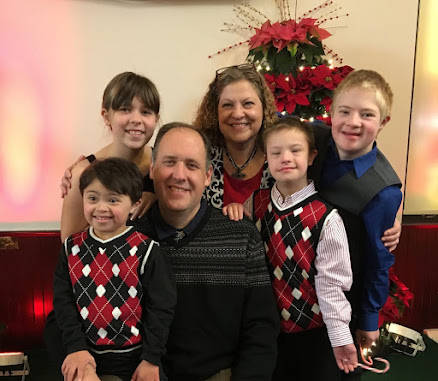On Sept 16, 1620 2 ships set sail from
Plymouth England, The Speedwell and the Mayflower. The Speedwell encountered
much difficulty as they began their journey springing many leaks in the ship.
So when the 2 ships went to Port in Plymouth England, the Speedwell decided to
go no further and 42 passengers from the Speedwell joined the 60 passengers and
30 crew members aboard the Mayflower..
Of the 102 passengers on board the Mayflower the majority were devout Christians. They were coming to America to shake lose from the bonds of the church of England so they could worship God as they believed scriptures taught.
And with great excitement and expectations that set sail for a new land... It wasn’t long before the trip became difficult for several reasons, as noted by William Bradford an historian on the Mayflower, who would later became Governor of the colony for 33 years.. Many of the passengers became sea sick as huge waves would crash over the deck of the ship... The nights were cold, damp and dark... Remember there was no indoor plumbing or electricity. They encountered many fierce storms which shook the ship with tremendous force. So fierce that many times they could not even keep the sail out and the force of the wind -- eventually cracked and bowed the main beams when they had just went over the half way point across the Atlantic. And although the passengers and crew wanted to turn back, Christopher Jones, the ships Master, assured all the vessel was "strong and firm under water." He ordered the beam to be secured. It was hoisted into place by a great iron screw that, fortunately, the Pilgrims brought out of Holland. AND Upon raising the beam, they "committed themselves to the will of God and resolved to proceed." These 100 people; cold, wet -- on wooden ship in the middle of the ocean -- put their hope, trust and lives into the hands of God. The battered ship finally came within sight of Cape Cod on November 19, 1620. Two had died at sea and two had given birth. The Pilgrims scanned the shoreline just to the west of them and described it as, "a goodly land wooded to the brink of the sea," William Bradford writes, "AFTER LONG BEATINGS AT SEA THEY FELL WITH THAT LAND WHICH IS CALLED CAPE COD; AND THEY WERE NOT A LITTLE JOYFUL..." They were filled with AWE that they had survived…in that moment they praised God for their past, the present and what they saw in their future!
The day the Pilgrims signed the May Flower Compact, according to William Bradford, "they came to anchor in the Bay, which was a good harbor...and they blessed the God of Heaven, who brought them over the fast and furious ocean... and a sea of trouble. And they read the following from the Geneva Bible (the Bible the Pilgrims used) "LET THEM, THEREFORE PRAISE THE LORD, BECAUSE HE IS GOOD AND HIS MERCIES ENDURE FOREVER."
This coming Thursday we will be celebrating Thanksgiving Day... Many will be busy cooking turkeys, making stuffing, baking pumpkin pies.... and watching football games. And that is fun stuff -- it is important to get together with loved ones...Yet, it is more than that…it is about giving thanks in AWE of the Lord God Almighty.
We usually picture the first thanksgiving in America, as the time when the Pilgrims and the Indians got together for a great feast. But I tend to look at that time when on the sea battered Mayflower anchored in the bay at Cape Cod, a group of weary and worn men and women were on their knees praising their God in heaven for bringing them safely through the treacherous sea to this new land, as the real first thanksgiving. They were living in awe of God. Giving is all in AWE because of their past, because of their present, and because of their future.
Of the 102 passengers on board the Mayflower the majority were devout Christians. They were coming to America to shake lose from the bonds of the church of England so they could worship God as they believed scriptures taught.
And with great excitement and expectations that set sail for a new land... It wasn’t long before the trip became difficult for several reasons, as noted by William Bradford an historian on the Mayflower, who would later became Governor of the colony for 33 years.. Many of the passengers became sea sick as huge waves would crash over the deck of the ship... The nights were cold, damp and dark... Remember there was no indoor plumbing or electricity. They encountered many fierce storms which shook the ship with tremendous force. So fierce that many times they could not even keep the sail out and the force of the wind -- eventually cracked and bowed the main beams when they had just went over the half way point across the Atlantic. And although the passengers and crew wanted to turn back, Christopher Jones, the ships Master, assured all the vessel was "strong and firm under water." He ordered the beam to be secured. It was hoisted into place by a great iron screw that, fortunately, the Pilgrims brought out of Holland. AND Upon raising the beam, they "committed themselves to the will of God and resolved to proceed." These 100 people; cold, wet -- on wooden ship in the middle of the ocean -- put their hope, trust and lives into the hands of God. The battered ship finally came within sight of Cape Cod on November 19, 1620. Two had died at sea and two had given birth. The Pilgrims scanned the shoreline just to the west of them and described it as, "a goodly land wooded to the brink of the sea," William Bradford writes, "AFTER LONG BEATINGS AT SEA THEY FELL WITH THAT LAND WHICH IS CALLED CAPE COD; AND THEY WERE NOT A LITTLE JOYFUL..." They were filled with AWE that they had survived…in that moment they praised God for their past, the present and what they saw in their future!
The day the Pilgrims signed the May Flower Compact, according to William Bradford, "they came to anchor in the Bay, which was a good harbor...and they blessed the God of Heaven, who brought them over the fast and furious ocean... and a sea of trouble. And they read the following from the Geneva Bible (the Bible the Pilgrims used) "LET THEM, THEREFORE PRAISE THE LORD, BECAUSE HE IS GOOD AND HIS MERCIES ENDURE FOREVER."
This coming Thursday we will be celebrating Thanksgiving Day... Many will be busy cooking turkeys, making stuffing, baking pumpkin pies.... and watching football games. And that is fun stuff -- it is important to get together with loved ones...Yet, it is more than that…it is about giving thanks in AWE of the Lord God Almighty.
We usually picture the first thanksgiving in America, as the time when the Pilgrims and the Indians got together for a great feast. But I tend to look at that time when on the sea battered Mayflower anchored in the bay at Cape Cod, a group of weary and worn men and women were on their knees praising their God in heaven for bringing them safely through the treacherous sea to this new land, as the real first thanksgiving. They were living in awe of God. Giving is all in AWE because of their past, because of their present, and because of their future.
Happy Thanksgiving! You know I love ya, Don















